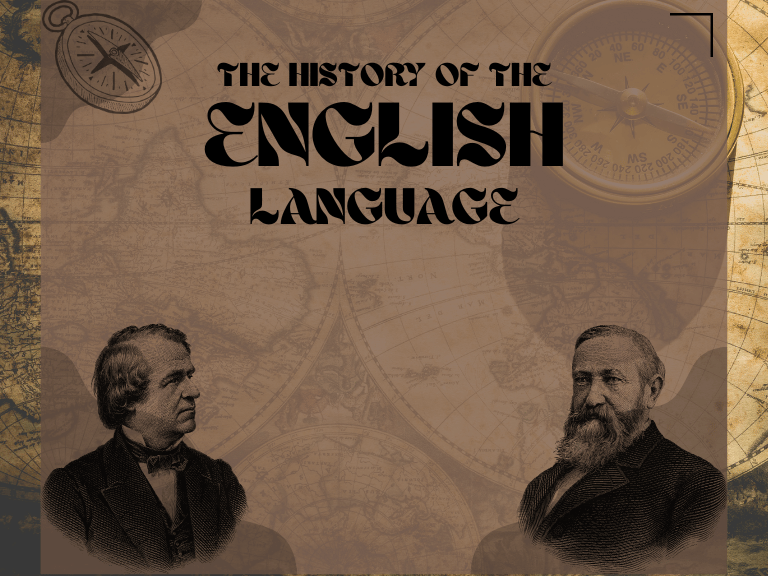The History of the English Language: Key Insights and Free PDF Resources

The English language is one of the most widely spoken and influential languages in the world today. From its humble beginnings as a Germanic language spoken by tribes in the British Isles, English has evolved into a global lingua franca, spoken by over a billion people worldwide. Its rich history is marked by significant cultural and linguistic influences that have shaped its vocabulary, grammar, and structure.
In this article, we’ll explore the fascinating journey of the English language, examining its origins, key historical events that shaped it, and the various cultural and linguistic influences that have made modern English what it is today. Additionally, we’ll provide useful resources, including free downloadable PDF materials, for anyone interested in delving deeper into the history of the English language.
An Overview of the History of the English Language
The history of the English language can be divided into several distinct periods, each marked by changes in its structure, vocabulary, and usage. These periods include Old English, Middle English, Early Modern English, and Modern English, and each one reflects the evolving nature of the language as it adapted to different influences over time.
1. Old English (450-1150 AD)
The roots of the English language lie in the Germanic languages spoken by tribes such as the Angles, Saxons, and Jutes, who migrated to the British Isles around the 5th century. Old English, as it is known, was largely a mix of these Germanic dialects. This period saw the formation of many fundamental aspects of the language, though Old English would seem almost unrecognizable to modern speakers due to its different grammar and vocabulary.
During this time, English was strongly influenced by Latin, primarily due to the spread of Christianity in Britain. Many religious terms and concepts were borrowed from Latin, including words such as “altar” and “bishop.”
2. Middle English (1150-1500 AD)
The Norman Conquest of England in 1066 was a turning point in the history of the English language. The Normans, who spoke Old French, brought with them a vast number of French words, especially in areas related to law, governance, and the arts. As a result, English began to absorb a considerable number of French loanwords, leading to significant shifts in vocabulary.
In addition to French, Latin continued to influence English, especially in education, religion, and science. The language became more complex during this period, and although it still retained many Old English elements, it was gradually evolving toward a more recognizable form of English. Middle English is perhaps most famous for being the language of Geoffrey Chaucer’s The Canterbury Tales.
3. Early Modern English (1500-1700 AD)
The period of Early Modern English saw some of the most significant changes in the language. One of the key factors in these changes was the Renaissance, which brought a renewed interest in classical languages like Latin and Greek. This period also saw the standardization of English, aided by the printing press invented by Johannes Gutenberg in the mid-15th century. The printing press made books more widely available, which helped to standardize spelling, grammar, and vocabulary.
During this time, English underwent substantial changes in both its pronunciation and grammar. The Great Vowel Shift, a major phonological change that affected the long vowels of the English language, played a significant role in shaping how English is spoken today.
The works of William Shakespeare, who wrote in Early Modern English, are often considered one of the finest examples of this period’s linguistic richness and creativity. His influence on the development of English is immeasurable, with many of his coinages and expressions still in use today.
4. Modern English (1700-Present)
Modern English began to emerge in the 17th century and continues to evolve in the present day. The language underwent further changes in syntax and grammar, and by the 18th century, many aspects of modern English usage had become standardized. The publication of Samuel Johnson’s A Dictionary of the English Language in 1755 helped to establish a more consistent system of spelling and grammar rules.
In the modern era, English has absorbed words from all over the world due to colonization, globalization, and the rise of the internet. Technological advancements, along with the spread of English-speaking media, have also contributed to the continual evolution of the language. Today, English exists in many dialects and varieties, influenced by cultural, geographical, and social factors.
Cultural and Linguistic Influences Shaping Modern English
Several factors have played a significant role in shaping modern English into the global language it is today. These influences include:
1. Latin and Greek Influence
Latin and Greek have contributed a large number of words to English, especially in academic, scientific, and legal fields. For instance, words like “biology,” “democracy,” and “university” come from Greek and Latin roots. The Renaissance’s revival of classical languages brought an influx of Latin-based vocabulary into English, further enriching its lexicon.
2. French Influence
The Norman Conquest in 1066 introduced French into the English-speaking world, and over the centuries, French has contributed thousands of words to the English language, especially in areas of culture, law, and administration. Examples include “government,” “council,” and “royal.”
3. Globalization and Borrowing from Other Languages
As the British Empire expanded and English-speaking countries interacted with other parts of the world, the English language absorbed vocabulary from a variety of languages. From Arabic, English borrowed words like “algebra” and “zero,” while from Indian languages came terms such as “pajamas” and “shampoo.”
4. Technological Influence
The rise of the internet and digital technologies has led to the creation of new vocabulary and slang terms. Words like “selfie,” “hashtag,” and “emoji” have become part of everyday language, demonstrating how technology continues to shape the evolution of English.
Suggested Readings and Downloadable PDF Resources
For those who wish to explore the history of the English language in more depth, there are numerous resources available online, including free PDFs and academic papers. Here are some suggested readings and PDF resources to help you dive into the rich history of English:
- “A History of the English Language” by Albert C. Baugh and Thomas Cable
This is a comprehensive text that covers the history of English from its earliest stages to modern times. It’s an excellent resource for students and language enthusiasts alike. - Free PDFs from Project Gutenberg
Project Gutenberg offers a variety of public domain texts, including works on the history of the English language. You can find classic texts such as The Canterbury Tales by Geoffrey Chaucer, which provide insight into the evolution of English. - “The History of the English Language” (PDF)
You can find downloadable PDFs that detail the history of English on academic websites and repositories. Websites like ResearchGate often host free versions of academic papers, which are a great source for in-depth studies. - “The Oxford English Dictionary: A History” (PDF)
The Oxford English Dictionary (OED) is one of the most authoritative sources on the history and etymology of English words. The OED website provides resources and downloadable PDFs that highlight the development of English vocabulary.
Conclusion
The history of the English language is a fascinating story of cultural exchange, adaptation, and transformation. From its roots in Old English to its current status as a global language, English has been shaped by various linguistic and cultural influences, making it one of the richest and most dynamic languages in the world.
For those interested in learning more about the evolution of English, numerous free and accessible resources are available online. These readings and downloadable PDFs can provide deeper insights into the history of English and its journey from a local dialect to an international lingua franca.





